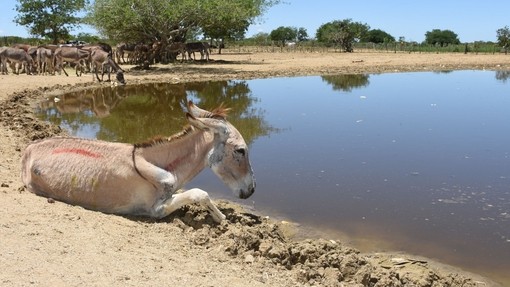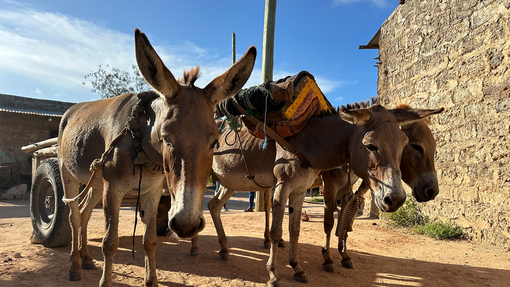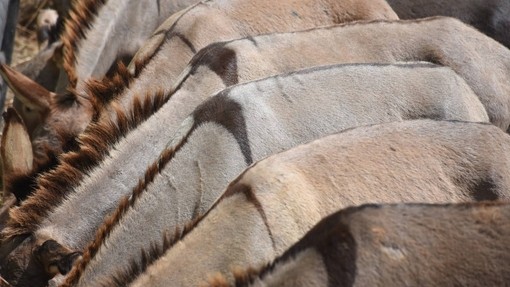
An investigation partnership with SPANA
An investigation into the donkey skin trade in Zimbabwe has uncovered a shocking case of animal cruelty that led to the deaths of more than 100 donkeys.
The research, carried out by Oxpeckers Investigative Environmental Journalism, was funded by the international charities, The Donkey Sanctuary and SPANA. It found that that at least 105 animals perished due to neglect at the site of a proposed donkey abattoir in Bulawayo, owned by a Zimbabwean businessman.
The donkey skin trade in Africa has been driven in recent years by an escalating demand for traditional Chinese medicine known as ejiao, a type of gelatine made from donkey skins. The trade is threatening the livelihoods of many of the continent’s most vulnerable communities, which rely on working donkeys.
Donkeys under threat
In response to this threat, a number of African nations, including Zimbabwe, have since imposed bans or restrictions on the slaughter and exports of donkeys. However, across the continent, the theft and killing of donkeys continues on a dramatic scale.
In Bulawayo, local animal welfare groups intervened after being alerted to the very poor condition of the donkeys being kept at the feedlot, many of which were severely injured, blind and emaciated. Since July 2017, a large number of animals have died at the property due to hunger, sickness and injuries, while an estimated 24 donkeys were also crushed to death in overcrowded trucks in transit to the site. Since the case was exposed, 78 critically ill donkeys have been euthanized on the recommendation of veterinary professionals.
The investigation, which can be read in full at Oxpeckers.org, is part of an ongoing campaign by The Donkey Sanctuary and SPANA to highlight the effects of the donkey skin trade in Africa and its implications for animal welfare and livelihoods.
Slaughterhouse plans
The owner of the proposed abattoir last year announced his plan to open a slaughterhouse processing up to 70 donkeys per day, to feed the growing demand for donkey skins,
Following pressure from local animal welfare organisations, Zimbabwe’s Department of Veterinary Services ruled out any possibility of licensing a donkey abattoir business. However, more than 170 donkeys awaiting slaughter remained on the property.
Although animal cruelty attracts a minimum fine of US$200, and even potentially a prison term, in Zimbabwe, Battlefront Investments has not been charged in connection with the donkeys that have died in its custody. Today, at least 20 donkeys remain on the property, where they are regularly inspected and treated by veterinarians from SPANA and other organisations.
Law enforcement officials and village chiefs said the prospect of a donkey abattoir at Bulawayo – and the potential for high prices for hides – had also prompted a spate of donkey thefts in the region late last year.
Calls for protection
Geoffrey Dennis, chief executive of SPANA, said: “This is an incident of absolutely horrific animal neglect. Sadly, this type of occurrence is all too common as the market for donkey skins in Africa continues to grow. That’s why SPANA is calling for an immediate halt to the donkey skin trade and enforcement of existing bans. The current trade is leading to horrific animal welfare abuses and is devastating communities across Africa.”
The Donkey Sanctuary relies on donations to continue its work to improve the lives of donkeys around the world and the communities who rely on them. Please support our work by donating today.
Support our work
Donate todayShare this page
Tags
- News






